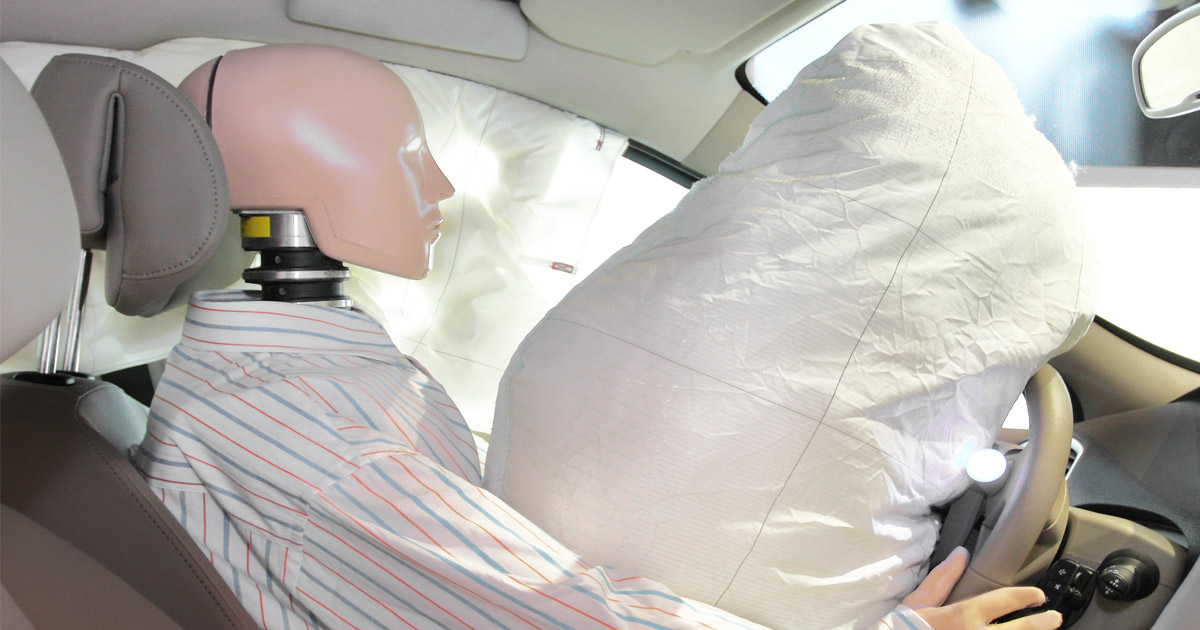People spend long periods of time in their cars, so safety is a top priority for all drivers. Car commercials often mention high safety ratings, but how many consumers actually do the research? Safety ratings provide a lot of valuable facts about crash test safety, impact protection, blind spots, car accident avoidance, and other information. Ratings help buyers decide which vehicles on the market are the safest. Car safety ratings are also updated often, so it is also best to find the most recent ones before starting to shop for a new vehicle.
What Features are Looked at in Crash Tests?
The best-known car safety rating is a crash test. The National Highway Traffic Safety Administration (NHTSA) and the Insurance Institute for Highway Safety (IIHS) conduct frontal crash and side-impact tests, and their guidelines are strict. One of the IIHS tests replicates when a car’s driver’s side hits a pole or tree head on. Rear-impact protection is also rated. Agencies, like the IIHS, look at rear head restraints and seat and head restraints through rear-impact crash tests. This is an important way to see how well the vehicles protect against whiplash and other common car accident injuries.
Accident avoidance capability is also evaluated. This shows what cars can do to avoid crashes, such as testing a vehicle’s emergency handling and braking capabilities. Rear blind zones are also analyzed since not seeing a vehicle or pedestrian and backing up into them can be deadly. Large vehicles, like pickup trucks and SUVS, have substantial blind spots, so it is essential for them to have warning systems for this danger.
Pickups and SUVs are also more at risk for rollover accidents. The NHTSA’s Rollover Resistance Rating looks at each vehicle’s Static Stability Factor (SSF), which is based on how top-heavy it is, and they also perform dynamic rollover tests. The latter uses driver simulation, which tests to see what happens during severe steering maneuvers. The IIHS also tests vehicles for roof strength since vehicles in rollover accidents often have their roofs crushed on impact.
NHTSA and IIHIS Tests
These two agencies use different kinds of safety rating systems, but all of their tests apply to passenger injuries. The NHTSA is part of the U.S. Department of Transportation (DOT), and the IIHS is an independent organization that was created to reduce the number of injuries, fatalities, and property damage from motor vehicle crashes.
The NHTSA has a one to five star rating system. The more stars the vehicle gets, the less likely passengers will be severely injured. They test for three kinds of crashes: frontal collisions, side impacts, and simulated rollovers. Although the NHTSA does not rate cars on accident avoidance capabilities, it gives special mention to those with certain features, like forward collision warnings and departure warnings. The NHTSA also has good information on safety defect investigations, recalls, and technical service bulletins.
The IIHS has four ratings: good, acceptable, marginal, and poor. They perform five tests: side impact, small overlap and moderate front, overhead restraint, seat, and roof strength. Some people prefer one agency over the other, but finding out as much information as possible from both organizations is wise.
How can I Learn About Car Safety?
Consumers can look up different vehicle makes, models, and years online. On most websites, the vehicles have categories for their features, including safety. Safety features include the types of air bags, stability control, and brake assistance. There are many other resources available for car safety research, but there are certain factors that should always be looked at before making a buying decision.
Important Safety Features to Research
Some important safety features include:
Structural Soundness: One of the most important safety features for avoiding injuries is a vehicle’s structural soundness. When a crash occurs, the car should be able to absorb and disperse the energy of the impact. Safer vehicles maintain their original shape better in crashes, and the inside and outside component parts should stay stable enough to not injure anyone. It is also important for doors to stay shut during the impact, but to be able to open right afterwards.
Anti-Lock Braking System: An anti-lock braking system is crucial as well, it prevents the wheels from locking up when the brake is applied. This system is supposed to kick in during an emergency; it provides more traction and control. A vehicle with active stability control is also safer. This system helps a driver by manipulating the vehicle to counteract sudden swerves; this can be effective for avoiding collisions.
Seat Belts: Most drivers understand the importance of wearing seat belts, but certain kinds are rated better than others. The top contender is a retractable, three-point seat belt that has pre-tensioners. These work to safely secure drivers and passengers in the event of a collision.
Airbags: Airbags can significantly lower the possibility of injuries and fatalities, and reviewers check to see that airbags deploy and inflate quickly upon impact. The highest-rated vehicles will usually have front, side, and knee airbags. Many also have curtain airbags, which deploy over the side windows, on top of the door rails. These offer protection between the passengers’ and drivers’ heads and windows.
Warning Systems: Rear cross-traffic warnings are desirable safety features, they alert the driver to vehicles and pedestrians approaching from the sides when the vehicle is in reverse. Lane-keeping assist and lane-departure warnings let drivers know when they are wandering out of their lanes or if there is another vehicle in the lane. The steering wheel is automatically corrected, or if there is imminent danger, the brake may be applied. Blind-spot warnings are similar and scan the areas that are behind and next to the vehicle, alerting drivers if something or someone is there.
Electronic Stability Control: Other well-reviewed safety features include electronic stability control, which helps avoid accidents and rollovers. Adaptive cruise control uses cameras, radars, and lasers to automatically maintain safe following distances between vehicles. Also, all vehicles manufactured in 2018 and after have mandatory rearview cameras, which are essential for backing up; they also work with many of the other safety systems.
Virginia Beach Car Accident Lawyers Help Drivers After Collisions
Safer vehicles can lead to less collisions, but our roads and highways are not completely accident-free. If you have been impacted by a motor vehicle crash, a trusted Virginia Beach car accident lawyer can help. At East Coast Trial Lawyers, our legal team protects injured car accident victims, and we are ready to help. Call us at 757-352-2237 or complete our online form for a free consultation. Located in Virginia Beach, Virginia, we serve clients throughout Chesapeake, Eastern Shore, Hampton, Newport News, Norfolk, Portsmouth, and Suffolk, Virginia, as well as North Carolina and nationwide.


